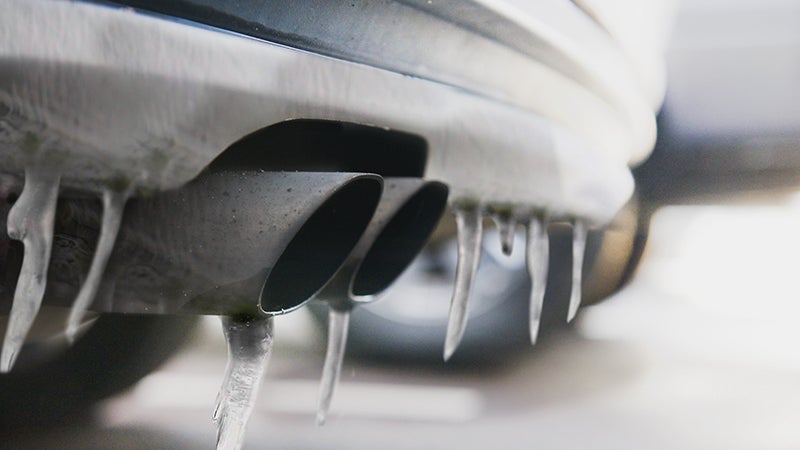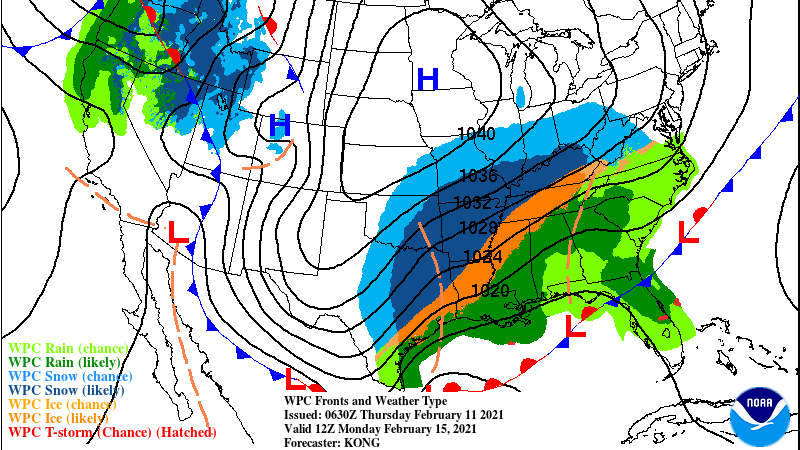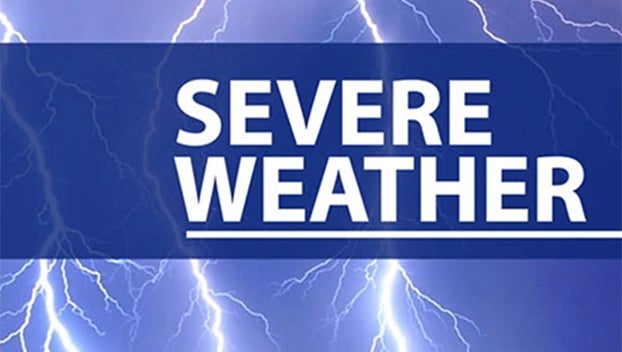National Weather Service talks possibilities & timelines for rain, freezing rain and sleet
Published 10:32 am Thursday, February 11, 2021
|
Getting your Trinity Audio player ready...
|
Rain and embedded thunderstorms are move through today (Thursday), giving way to colder temperatures, according to the National Weather Service.
Most places should stay above freezing, so no frozen precipitation is expected Thursday night, Warning Coordination Meteorologist Roger Erickson says.
However late Friday night into Saturday morning, Erickson said if there is any precipitation lingering, freezing rain will be possible in central Louisiana. Temperatures will be above freezing further south across Southeast Texas and southwest and south central Louisiana.
Most of Saturday and Sunday will be dry, with cold temperatures, highs in the 30s and 40s, and lows in the 20s or 30s.
Erickson said another round of precipitation is expected, starting late Sunday night into Monday.
“This system could cause problems with rain, freezing rain and sleet all possible,” Erickson said. “It is too early to say if this will be a significant ice storm like the one in 1997, but it bears watching the forecast as we go through the weekend.”
In the coming days, Texans will be experiencing extremely cold temperatures. Safety is CenterPoint Energy’s number-one priority and the company is preparing for the upcoming weather conditions. CenterPoint Energy is offering these tips to ensure a safe and warm home:
Make sure your heating system is working properly. Malfunctioning home heating equipment can cause a fire or carbon monoxide poisoning. Check that outside furnace vents aren’t blocked by snow or ice. Keep your furnace filter clean for safe, efficient operation.
Use space heaters safely. Use a space heater with an automatic shut-off, and keep children, pets and all items at least three feet away. A space heater that uses gas, propane or wood should be vented to the outside. Stoves and ovens should never be used for space heating.
Check your carbon monoxide (CO) and smoke alarms. These devices are essential to warn you of a fire or dangerous malfunction with a furnace, water heater, fireplace or stove. Test your alarms monthly and change batteries every year.
Immediately report a suspected gas leak. If you smell the “rotten egg” odor of natural gas, immediately leave on foot, go to a safe location and call both 911 and CenterPoint Energy at 888-876-5786. Don’t use electric switches, phones (including cell phones), drive or start a car, or do anything that could cause a spark.
Energy Efficiency
Cold temperatures also mean increased energy usage. CenterPoint Energy recommends the following tips for more efficient heating:
Furnace: A furnace is the largest natural gas consuming appliance.
- Set your thermostat no higher than 68 degrees. If possible, set it at 65 degrees when you are home and 60 degrees when you are away from home.
- Lowering your thermostat can help you save on your annual heating costs. Installing a programmable thermostat can help you automatically control your heat usage. Add on extra layers of clothing to keep warm.
- Change your air filters monthly. A dirty filter restricts airflow and can increase the operating cost of your furnace by as much as 10 percent. A good reminder is to change the filter each time you receive your natural gas bill.
Other appliances: Although they consume less natural gas, you can still maximize their efficiency.
- Run your washing machine, dish washer and gas dryer only with full loads.
Make your home more airtight and keep cold air outside:
- Seal leaks around doors, windows and other openings such as pipes or ducts, with caulk or weather-stripping. The most common places where air escapes in homes are floors, walls, ceilings, ducts, fireplaces, plumbing penetrations, doors, windows, fans, vents and electrical outlets.
- If it has been a while, consider adding more insulation in your attic.
- On sunny days, open draperies and blinds to let the sun’s warmth in. Close them at night to insulate against the cold air outside.







